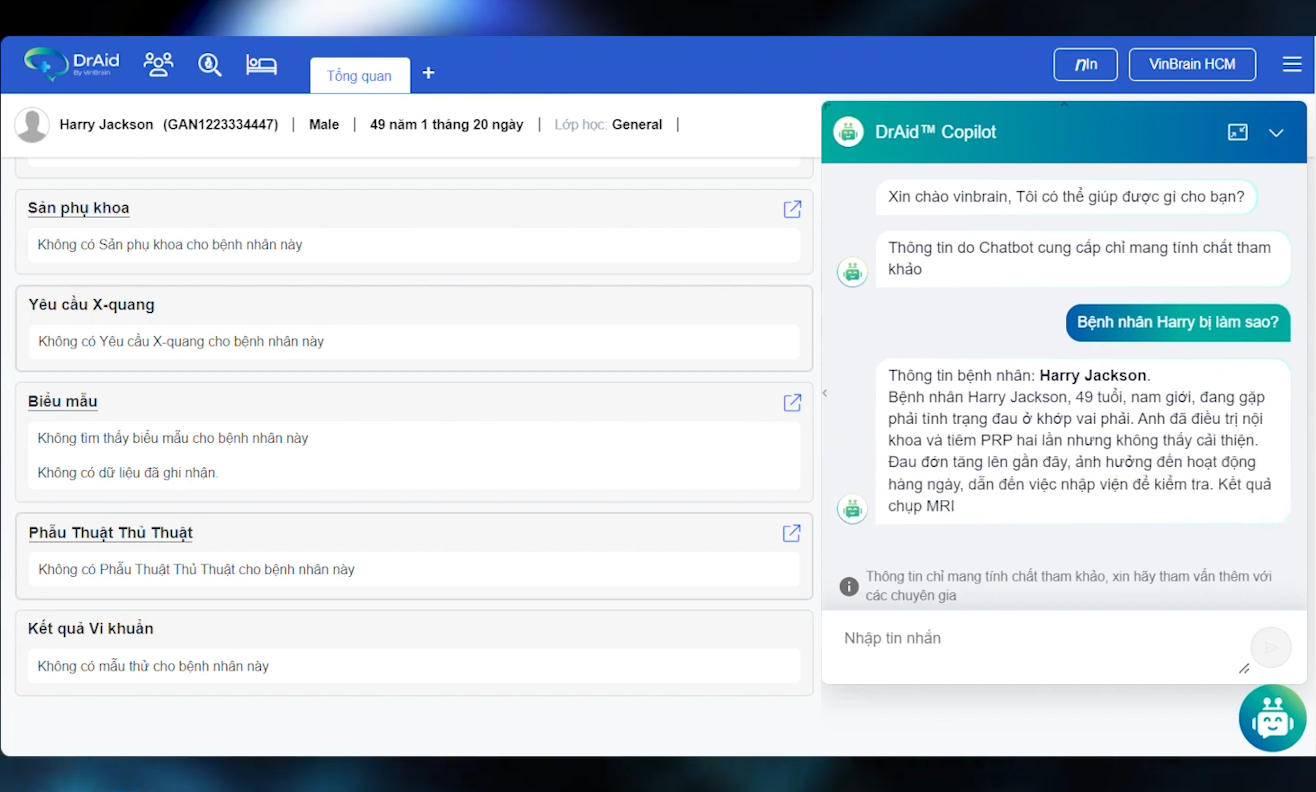As Vietnam strives to become a digital nation by 2030, all sectors need to undergo significant transformations. This will not only help achieve the dual objectives of developing a digital government, economy, and society but also foster Vietnamese digital technology enterprises to compete on the global stage. So, what breakthrough does the healthcare sector need to realize these ambitious goals? With the efforts of the entire public and private system, especially the involvement of well-invested technology companies, the solution is gradually becoming apparent.
DrAid™ Enterprise Data Solution is one of three IT solutions receiving the Sao Khue Award 2024 in the Digital Transformation category this year. This prestigious award is evidence of the practical value and effectiveness of DrAid™ in addressing the challenge of healthcare data management, contributing to the digitization of healthcare, and improving the quality of healthcare services for the Vietnamese people.
The current digitization of the healthcare industry faces many challenges, including centralized healthcare data management, drug management, and electronic patient records (EMRs). The lack of data standardization and inefficient information interoperability makes management difficult, affecting the quality of healthcare services and hindering the ability to provide accurate and personalized healthcare services to patients.
The current healthcare system faces a challenge: fragmented patient data. Citizens visiting hospitals, public or private, encounter the same hurdle – their medical information remains isolated and lacks standardization. This not only creates long wait times due to overwhelming systems, but also hinders proper follow-up care due to incomplete medical histories. To overcome these obstacles and achieve true digitization, the healthcare sector needs to take control of its data. This requires a large, intelligent, and robust data management system capable of handling millions of daily entries, ensuring efficient storage, processing, and ultimately, improved patient care.
Playing the role as an AI software assisting doctors and healthcare managers, DrAid™ Enterprise Data Solution consists of four primary solutions: Data Lake, Data Management & Knowledge System - Smart Automatic Report Generation - EMR Smart Analytics - Hospital Dashboard and Predictive Analytics. Amongst, the Data Lake is the core and focal point, leveraging AI technology to store, screen, analyze and forecast data. Raw healthcare data will be no longer scattered or wasted. Instead, this massive data set will be transformed into knowledge after processing and classification by AI.
Platforms like DrAid™ harness the power of AI to revolutionize healthcare by optimizing resource analysis and fostering personalized treatment. This is achieved through a combination of deep learning AI and big data analysis. Deep learning sifts through vast amounts of medical data, both horizontally (across different specialties and hospitals) and vertically (focusing on an individual's medical history). This real-time analysis of comprehensive medical records empowers doctors with unparalleled insights, leading to more accurate diagnoses and personalized treatment plans. Moreover, DrAid™ Enterprise Data Solution can automatically generate medical reports (which can be translated into over 25 languages) from diagnostic results, complying with the standard reporting template of the Radiological Society of North America (RSNA). Furthermore, the intelligence of the integrated AI platform is also evident in its speech-to-text feature, helping doctors quickly and easily create medical reports. AI, apparently, empowers doctors to streamline workflows, save valuable time, and ultimately make more informed decisions.
Within the DrAid™ ecosystem, there is an intelligent chatbot called DrAid™ Copilot, a 24/7 virtual healthcare assistant specifically designed for doctors and healthcare managers, which is the first of its kind developed in Southeast Asia, representing a significant step forward in the simultaneous application of AI and medical knowledge technology.

The unique feature of DrAid™ Copilot compared to AI chatbot applications by Google or Microsoft lies in its ability to quickly and accurately respond to and guide responses on healthcare topics, even when users ask general questions unrelated to healthcare. It also quickly understands and processes specialized terms, helping filter and support the most accurate and objective decision-making.
Discussing the advantages of AI assistants, Dr. Ngo Trong Nguyen, Head of the Diagnostic Imaging Department at Hospital 198, shared: " I am currently handling both technical responsibilities and managerial roles. AI has significantly changed how we work, with the support of virtual assistants, our daily tasks have been truly optimized. "
For patients, DrAid™ will provide better quality care by reducing waiting times, providing transparent treatment information, and maintaining individual patient records. DrAid™'s recognition at the Sao Khue 2024 Awards is a significant catalyst for the digital transformation of Vietnam's healthcare sector. It marks an important milestone for Vietnamese technological products to expand into the international market, demonstrating their value to both the domestic and global healthcare communities.
Top